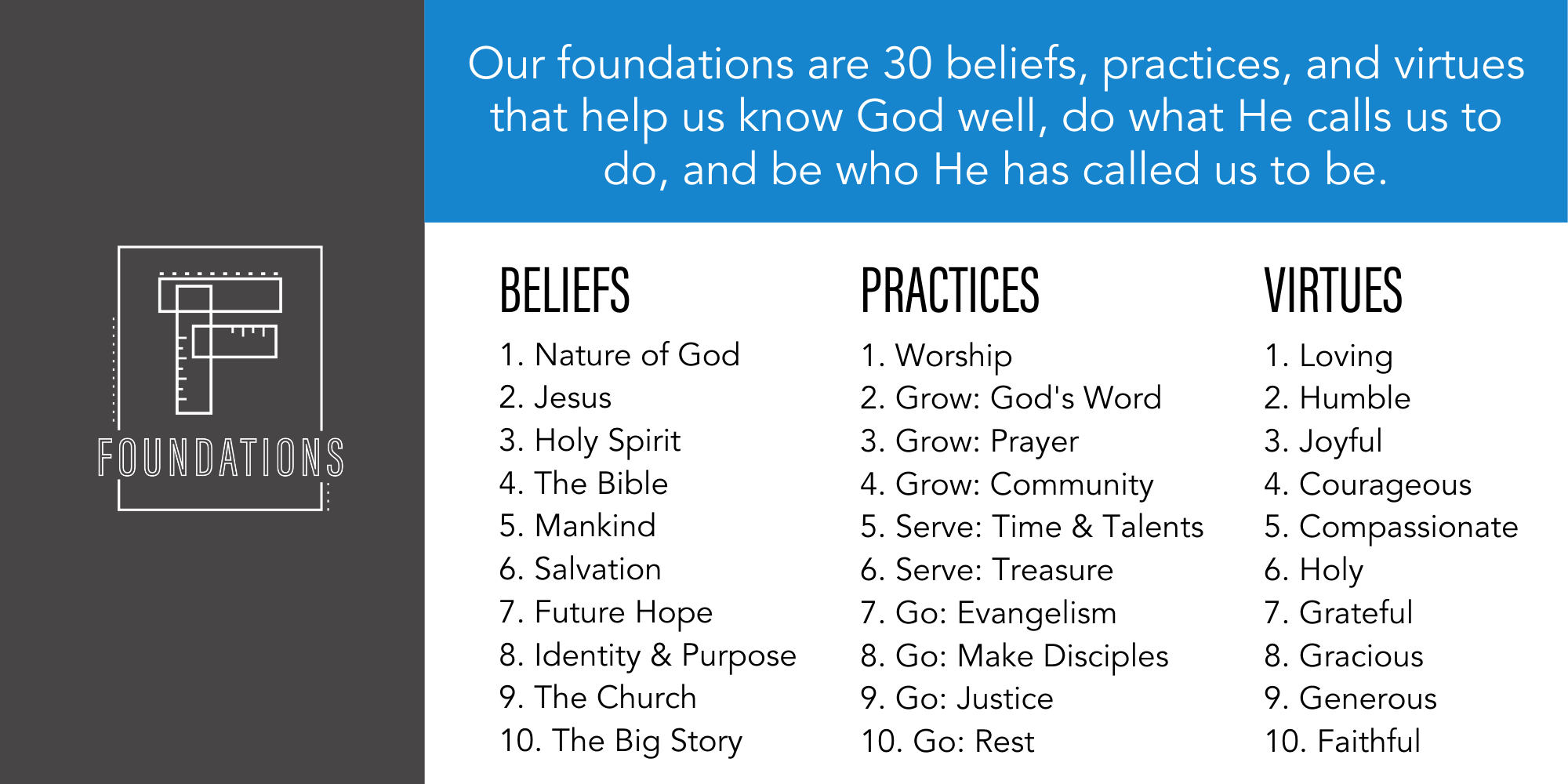Foundations Blog
We’re in a new series called “Foundations” which builds off of Jesus’ metaphor in Matt 7: “A house built on sand will never be able to stand BUT a house that’s built on the rock will never be able to fall.”

Practice #8 GO MAKE DISCIPLES - Day 1
This week, we’re in Practice #8: Go Make Disciples. We will look at four ways the New Testament describes discipleship, or the process of making more followers of Jesus. These descriptors include the words mutual, didactic, edifying, and holistic.
Today, let’s consider that discipleship is mutual, meaning that as I disciple you, you disciple me. In the Kingdom of God, there is no hierarchy. We are all children of God - equal daughters and sons who have been gifted the same Holy Spirit and called to the same calling of holiness. Though we may hold different roles in society and the institution of the church, we are equal in our relationship with Jesus, the One whom we follow.
In 1 Peter 2:9, we learn that the Jesus followers who make up the church are “a chosen people, a royal priesthood, a holy nation, God’s special possession.” What Peter is doing is applying Old Testament covenantal language that was used to describe the nation of Israel to the newly formed entity known as “the church.” This is mind-boggling! Though the church is made up of Jews and Gentiles, men and women, people of different ethnicities and socio-economic levels and backgrounds, they are now a united group because of their faith in Jesus.
When Peter refers to them as a “royal priesthood,” he is referring to the role of mediation that was once held by the nation of Israel. As priests, Israel could mediate (or, stand in the middle) to help the people of the world come to know the one true God, Yahweh. In the New Covenant, every believer in Jesus now is a priest who has the honor of helping others connect with God. Simply put, we mediate for one another with God, helping to sharpen and grow each other in Christlikeness until we are with Jesus in eternity.
The language of mutuality permeates the New Testament. Here are a few examples:
Rom. 14:19 (NET)
So then, let us pursue what makes for peace and for building up one another.
1Cor. 12:25 (NET)
So that there may be no division in the body, but the members may have mutual concern for one another.
Gal. 5:13 (NET)
For you were called to freedom, brothers and sisters; only do not use your freedom as an opportunity to indulge your flesh, but through love serve one another.
Because the Kingdom of God is an upside-down Kingdom, discipling another person is not an act of taking authority over them but an act of humble service. And it’s a service that prompts them to do the same, so that discipleship becomes a mutually beneficial experience. We are fellow priests who help prepare one another as we look toward Glory.
Let’s close with some reflection questions:
- What does it mean that we, as a church, are a royal priesthood? How does this play out in mentoring and discipling relationships?
- When I reflect on people who have helped me follow Jesus more closely, did I see mutuality in our relationship?
- When I consider discipling another person, do I have an attitude of authority or of humility? How does knowing that discipleship is mutual help me to re-orient my expectations?
Published on 11-15-2021 @ 4:31 AM CDT
